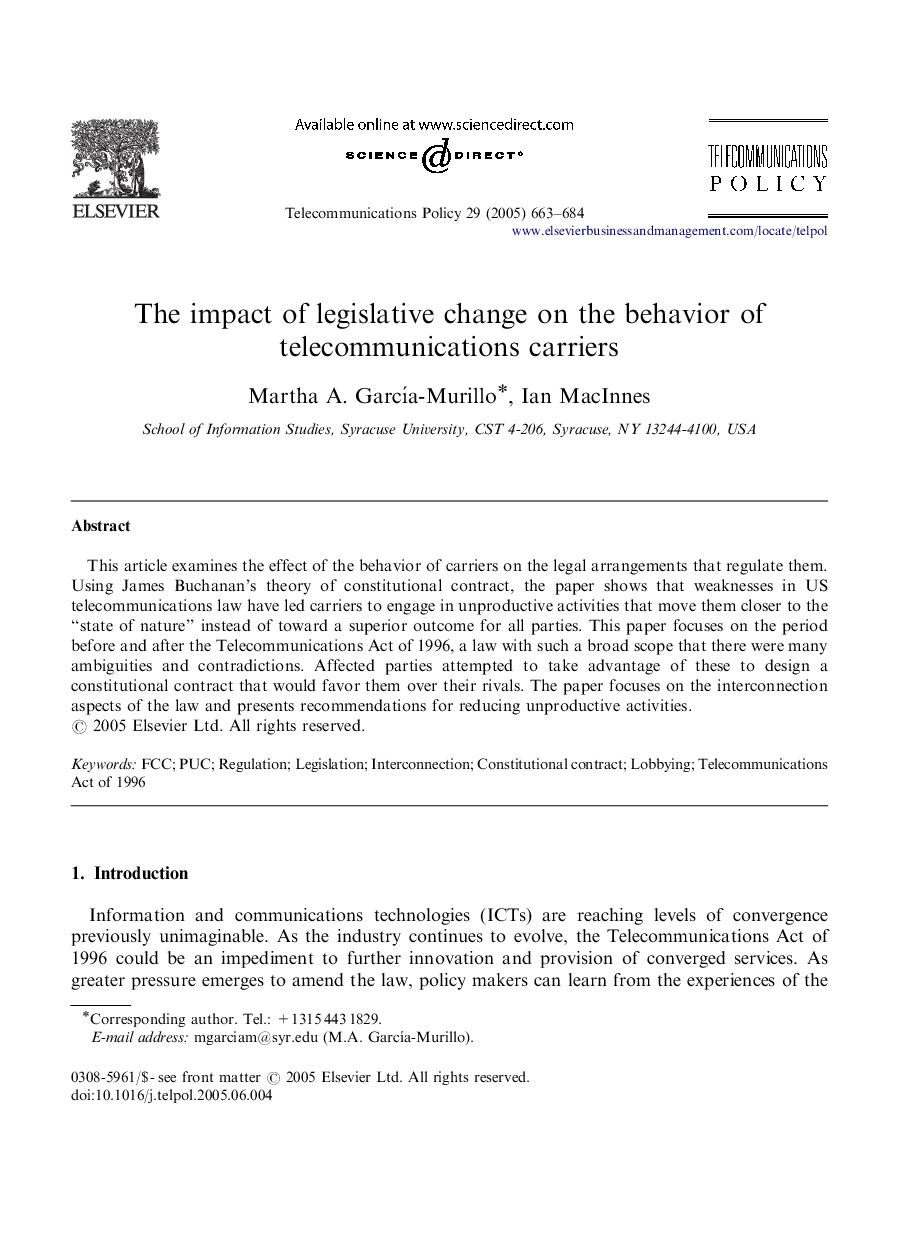| Article ID | Journal | Published Year | Pages | File Type |
|---|---|---|---|---|
| 10368400 | Telecommunications Policy | 2005 | 22 Pages |
Abstract
This article examines the effect of the behavior of carriers on the legal arrangements that regulate them. Using James Buchanan's theory of constitutional contract, the paper shows that weaknesses in US telecommunications law have led carriers to engage in unproductive activities that move them closer to the “state of nature” instead of toward a superior outcome for all parties. This paper focuses on the period before and after the Telecommunications Act of 1996, a law with such a broad scope that there were many ambiguities and contradictions. Affected parties attempted to take advantage of these to design a constitutional contract that would favor them over their rivals. The paper focuses on the interconnection aspects of the law and presents recommendations for reducing unproductive activities.
Related Topics
Physical Sciences and Engineering
Computer Science
Information Systems
Authors
Martha A. GarcÃa-Murillo, Ian MacInnes,
